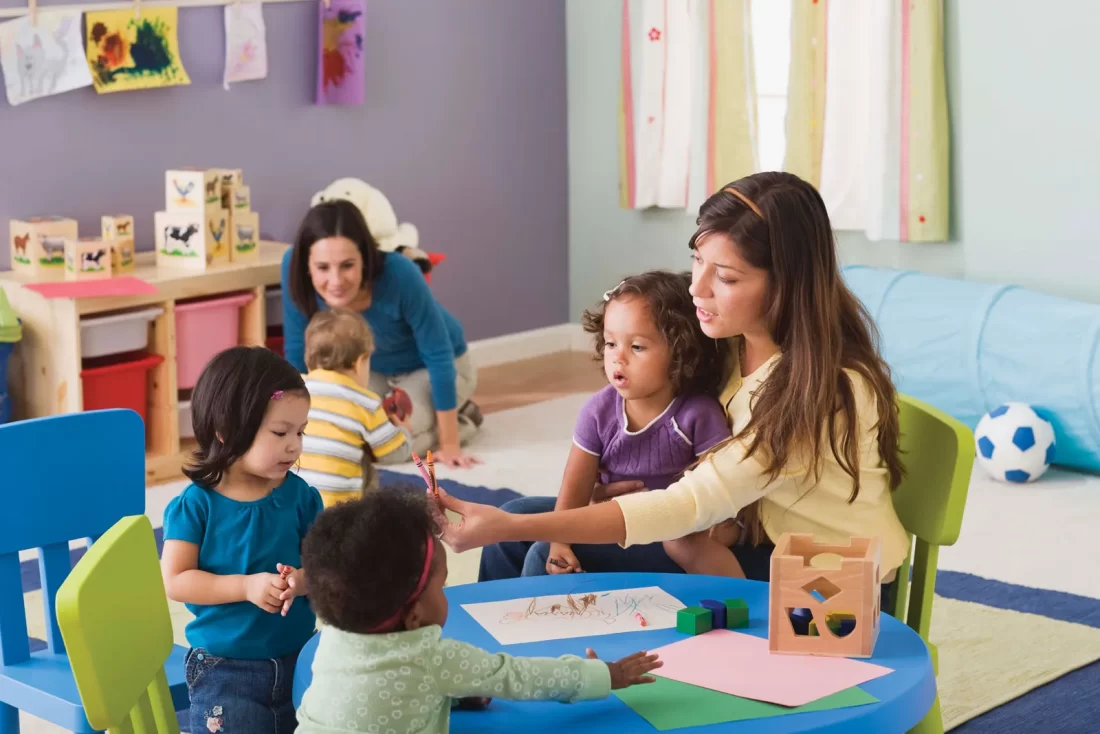As parents, we always want to ensure our children are cared for, whether they are in our care or another’s. Many parents may have family and friends who watch over their little ones. For others, we may enroll our kids in a daycare program. For many of us who choose this route, I know we can all agree that safety should be the main priority in any daycare setting. The well-being of our children is crucial but the regulations set in place may differ depending on state, local, or federal requirements. Let’s take a closer look!

Licensing and Accreditation
When searching for a daycare for your child, it’s crucial to ensure that the facility meets all necessary safety regulations. According to a Hartford personal injury lawyer, premises liability can play a significant role in accidents that occur, even when the injury isn’t directly caused by your child’s actions. To help protect your child from potential hazards, it’s essential to verify that the daycare is fully licensed and accredited. These certifications ensure that the facility adheres to strict safety standards and provides a secure environment for your child to thrive in. Always prioritize these checks as part of your daycare selection process to ensure the highest level of safety.
What Does Licensing Mean?
Licensing for childcare means setting minimum safety and health requirements for childcare programs that they must meet to operate legally. These are the standards set in place to ensure your child is safe and healthy when at daycare. Many of these requirements include:
- Criminal background check for childcare staff
- Ongoing training for childcare staff, such as CPR, first aid, and safe sleep for infants
- Sanitation
- Emergency planning
- Building Safety
- Child and caregiver health
- Ongoing monitoring to ensure the childcare program continues to meet all health and safety requirements
Accreditation: Going Beyond Licensing
In addition to licensing, there is also daycare accreditation. This is the process in which they are upholding the standard set in place by daycare licensing. Many national associations that deal with Accreditation are:
- National Association for the Education of Young Children (NAEYC)
- National Association of Child Care Resource and Referral Agencies (NACCRRA)
- National Accreditation Commission for Early Career and Education (NAC)
- National Early Childhood Program Accreditation (NECPA)
Accreditation ensures continual efforts to high standards of care, education, and safety for your children as they participate in childcare programs.
How to check if a daycare is licensed is by going on online databases and state health departments to see if they are listed. The next step is confirming their accreditation status to see if they are upholding their regulations before enrolling your child into their daycare.
Staffing and Training Requirements
Other important requirements include staffing and training regulations. These can include:
- Staff-to-Child Ratios: Checking state-mandated staff-to-child ratios and that there is proper supervision and care implemented into the daycare programs. Many of these ratios can vary by the age of your child.
- Staff Training and Certification: Ensuring all staff are certified and trained in the appropriate areas including CPR, first aid, and child development courses. Also requiring background checks and child abuse clearances for all staff is important as well.
- Supervision Standards: Continuous supervision is also crucial for both indoor and out settings of day care. Standards and protocols should be set in place for supervision during nap times, meals, and playtime to avoid any potential accidents.
Physical Environment Safety Standards
The physical environment safety standards implemented are also an important factor to keep in mind. In regards to the design and the safety features, creating a child-friendly physical environment is important for the well-being of your children. This can include childproofing indoor and outdoor areas for activities and playtime.
Also, having proper storage of cleaning supplies can prevent any potential interactions with hazardous materials or dangerous medications that could pose a threat to the well-being of your children. Ensuring safety features are implemented through efforts such as using outlet covers, window guards, and fire safety equipment are great ways to safeguard. The maintenance of safe sleep areas is also secure to prevent any potential accidents that involve suffocation or even Sudden Infant Death Syndrome (SIDS) is crucial as well.
Upholding outdoor safety standards implemented for playground safety regulations is significant in protecting your children from outside activities such as playground climbing or recess. These can include age-appropriate equipment, soft ground covers, gates, and safe exits that prevent any wandering.
What Parents Should Ask When Choosing a Daycare
As a parent, you also have the right to ask the appropriate questions when choosing a daycare for your child. Some common and important questions to ask about safety and standards can include:
- What safety measures do you have in place for outdoor play?
- Can you provide documentation of your licenses, inspections, and accreditations?
- How do you handle medical emergencies, and do your staff members have first aid/CPR training?
Also visiting the daycare and observing their safety practices in person can help you know whether the child care program is upholding their licensing and standards. Parents can also follow up with state agencies to check if the daycare has been compliant with these safety regulations and inspections.
Move Forward With Confidence in Choosing The Right Daycare
Ensuring the daycare meets all required safety standards for your little one and their well-being can help you move forward with confidence that you are choosing the right place for them to grow and learn. Being proactive and not hesitating to ask questions will help you feel more comfortable with your daycare’s safety practices before enrolling your child. If you notice any safety concerns, it is also alright to voice your opinions and address them. Knowing how to report any unsafe conditions and advocate for your own child will not only help them in the long run but all children who are enrolled.



